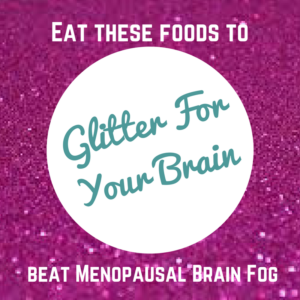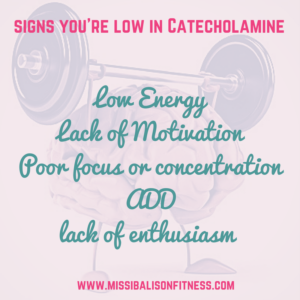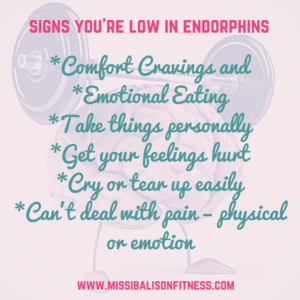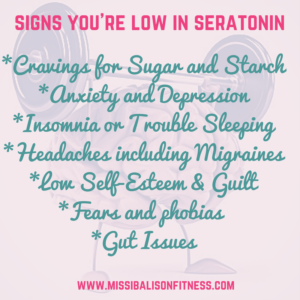Help For Perimenopausal Brain Fog
 June is National Brain Health Awareness month we are going to dive into matters of the mind. As perimenopause and menopause set in so does brain fog. It becomes quite clear that our brains don’t work quite like they used to. Our focus lacks, concentration is poor, moods become unpredictable and anxiety can take hold. too many times we think this is just something we have to deal with as we go through this change but there is definitely something we can do to help support our bodies and give our brains a hand at the same time!
June is National Brain Health Awareness month we are going to dive into matters of the mind. As perimenopause and menopause set in so does brain fog. It becomes quite clear that our brains don’t work quite like they used to. Our focus lacks, concentration is poor, moods become unpredictable and anxiety can take hold. too many times we think this is just something we have to deal with as we go through this change but there is definitely something we can do to help support our bodies and give our brains a hand at the same time!
We are going to get down to the nitty gritty today but don’t worry, my goal is to make the science simple. We are going to learn about brain chemicals, what they do and how you can eat to support them in the best possible way.
Let’s start by learning about neurotransmitters. It’s a huge word but don’t be worried because it’s really pretty simple.
Brain chemicals that make you feel good
Neurotransmitters are simply the brain chemicals that communicate information throughout our brain and body. The brain uses neurotransmitters to tell your heart to beat, your lungs to breathe, and your stomach to digest. Pretty key to have these neurotransmitters functioning properly for YOU to function properly. If you are not producing enough of the right neurotransmitters it is like having a kink in your mental hose! The thoughts, focus, memory, etc will just trickle rather than flow. – Any perimenopausal or menopausal women nodding their heads out there?
We so often think about feeding our bodies but what about our brains? It is so important to give our brains the right foods so it can produce the right neurotransmitters (brain chemicals). Depleted brain chemistry can make you feel like a completely different person. (Sound anything like menopausal symptoms?)
There are many important brain chemicals but we are going to learn about some of the most important brain chemicals to keep you happy and balanced, the signs of being too low in these chemicals and how to eat to encourage their production in order to get you down the path to fueling that brilliant mind of yours properly!
Get my Free Good Mood Food Guide to help you Power UP!
[clickfunnels_embed height=”650″ url=”https://missibalisonfitness.clickfunnels.com/squeeze-page14375829″ scroll=”yes”]
Today’s special guest neurotransmitters are:
The “stimulators”:
- The Catecholemines
- Endorphins
- Dopamine
The “relaxers”:
- GABA
- Seratonin
- Glutamate
Let’s start with the “Stimulators” because I am pretty sure we could all use a little of that. The stimulators are the brain chemicals that have an excitatory effect on the brain. In other words they kind of pump you up!
The Catecholamines
The catecholamines are a group of neurotransmitters that include dopamine, epinephrine and norepinephrine. Catecholamines are produced in the adrenal glands. The amount of physica l or emotional stress you are under at a given time will show in the amount of catecholamines circulating. This group brain chemicals plays a critical role in perimenopausal brain fog as well as moods and energy levels.
l or emotional stress you are under at a given time will show in the amount of catecholamines circulating. This group brain chemicals plays a critical role in perimenopausal brain fog as well as moods and energy levels.
Foods that increase the catecholamines include:
- Caffeine such as Coffee, tea, cocoa, chocolate
- Bananas
- Citrus fruits
- Vanilla
Dopamine:
Dopamine energizes the brain and is said to be our pleasure, feel good or reward brain chemical. It helps us to stay focused, energized, and motivated. It keeps us from procrastinating and allows us to feel enjoyment from the world around us.
If you have healthy dopamine levels you are likely a person who is:
- Very focused,
- Hardworking and possibly overachieving
- Found to have high energy levels
- Very productive
If you are too low in dopamine you are someone who likely:
- Craves sugar or caffeine for that jolt of energy and focus
- Procrastinates
- Drags at going to otherwise fun social events
- Succumbs to negativity or finding joy in the world around you
Don’t worry though…We can fix this!
When we give ourselves a “reward” or some kind the brain shoots our dopamine causing us a “feel good” sensation. Our brain like this sensation and wants to repeat whatever triggered the energizing brain chemical. Make time to do the things you love and bring you satisfaction. When you accomplish a goal (even if it is just completing that one workout you really didn’t want to do) give yourself the “reward” of a “Booyah” and a fist bump and you’ll luckily get that dopamine hit the brain craves.
Foods that can help increase dopamine:
Try eating more of these Tyrosine (an amino acid) containing foods to increase your dopamine levels:
- Almonds
- Avocados
- Bananas
- Beef
- Chicken
- Chocolate
- Coffee
- Eggs
- Green Tea
- Milk
- Watermelon
- Yogurt
Did you know that simply smiling can cause a release of dopamine. The problem can be that when we are low on dopamine we don’t always feeling like smiling. Read THIS ARTICLE to find out how to get more dopamine.
Endorphins
Endorphins are a group of brain chemicals many people have heard of before. This is the feeling known as a “runner’s high,” and often comes with a “rush” or a positive and energizing outlook on life They are created in the brain and can act as a sedatives while reducing your perception of pain. (Well, that’s handy, especially if you’re running a long way!)
These handy brain chemicals also trigger a positive feeling in the body. When you exercise, your body releases these powerful endorphins. They make exercise seem “not so bad” 
Because of these endorphins, regular exercise has been proven to:
Reduce stress
Ward off anxiety and feelings of depression
Boost self-esteem
Improve sleep
So, get to it! Get that workout in. Even if you don’t feel like it, just commit to a few minutes and once those endorphins kick in you’ll want to finish the whole workout.
Lets’ chat with the mellow brain chemicals now…
GABA
GABA is a big player in behavior, perimenopausal brain fog, cognition (thinking – THINK: Walking into a room and forgetting why you are there and is this even your home?!), and the body’s response to stress. Perimenopausal and menopausal women do not process stress very well (you may have noticed!). This neurotransmitter helps to control fear and anxiety when neurons become overexcited. So many menopausal women report struggling with increased and even debilitating anxiety. Low levels of GABA are linked to depression, anxiety, abnormal heart rhythms and sleep disorders. So many of these things are symptoms experienced during peri/menopause. Life can be so much better if we can get more of this brain chemical.
you are there and is this even your home?!), and the body’s response to stress. Perimenopausal and menopausal women do not process stress very well (you may have noticed!). This neurotransmitter helps to control fear and anxiety when neurons become overexcited. So many menopausal women report struggling with increased and even debilitating anxiety. Low levels of GABA are linked to depression, anxiety, abnormal heart rhythms and sleep disorders. So many of these things are symptoms experienced during peri/menopause. Life can be so much better if we can get more of this brain chemical.
GABA is made from the neurotransmitter Glutamate in the brain. To increase levels of GABA through the diet, it is important to eat glutamate-rich food sources such as:
- bananas,
- halibut,
- almonds,
- oranges,
- lentils,
- oats,
- rice bran,
- potatoes,
- Walnuts
- spinach.
Increasing your intake of vitamins, minerals, magnesium and the amino acids L-theanine and taurine as well as various herbal substances can help to increase GABA naturally including kava root and valerian.
Seratonin
Seratonin is known as our self esteem brain chemical. It is thought to be especially active in constricting smooth muscles (heart, lungs, guts…), transmitting impulses between nerve cells, regulating cyclic body processes (such as the menstrual cycle) and contributing to well-being and happiness.
- Seratonin is said to be responsible for maintaining mood balance. (PMS anyone?)

- The majority of the body’s serotonin can be found in the intestinal tract
- Low levels of Seratonin has been linked to depression.
- Exercise, a healthy diet, smiling and a light can all boost Seratonin. (Link to smile article)
If you find your moods are “swingy” maybe it’s not just hormones…You can support those hormones by actually supporting your seratonin levels. Seratonin isn’t actually found in foods but the amino acid tryptophan is. Tryptophan helps the body produce seratonin
Foods that boost Seratonin:
- Eggs
- Cheese
- Pineapple
- Tofu
- Nuts and Seeds
- Salmon
- Turkey
Well ( dusts hands off) that was great walk through several things you can do and foods you can eat to not only help you decrease perimenopausal brain fog but to increase you energy, focus, moods and to just be happier in general. Just think about how much smoother this whole transition will go when you can incorporate these foods and some exercise into each day. Don’t take my word for it though. It is really important to spend time testing these things out and to see how your body responds. Here’s how:
- Make a meal plan incorporating as many of these foods as possible
- Keep a journal recording how you feel a few hours after each meal and as an overall view of each day
- Start an easy exercise routine to boost your energy and your feel good brain chemicals
Get ready for a renewed outlook on life!
